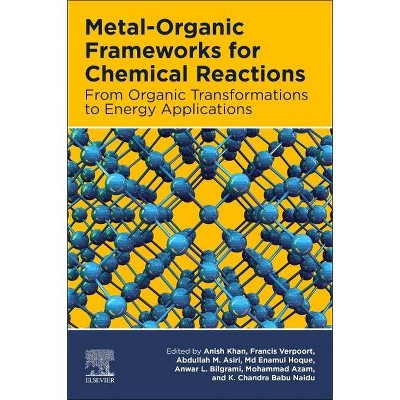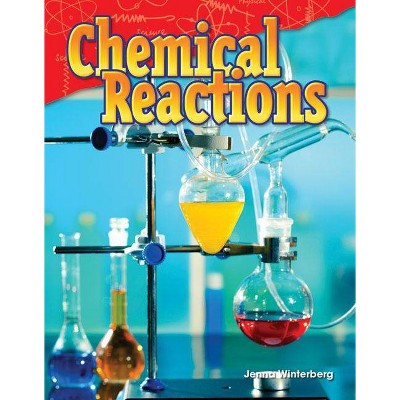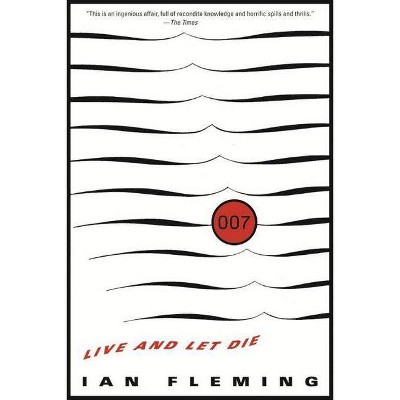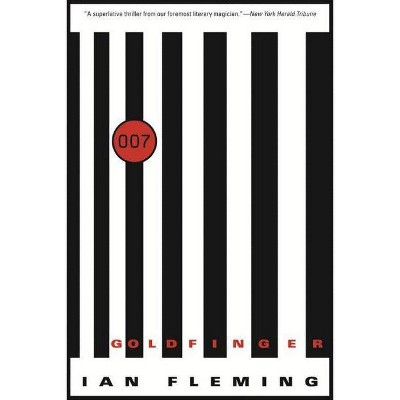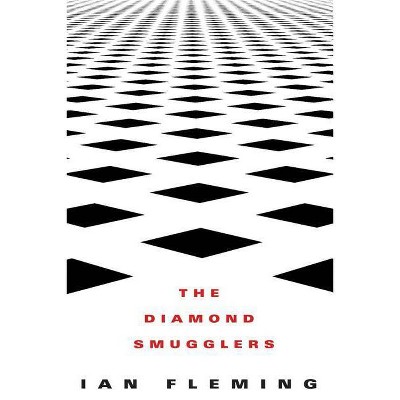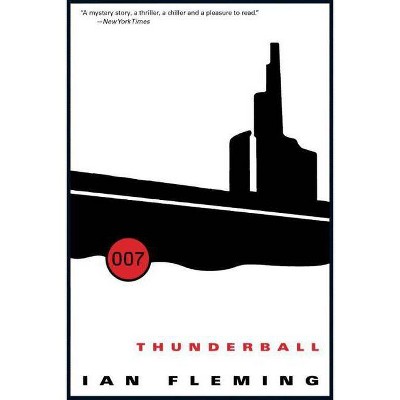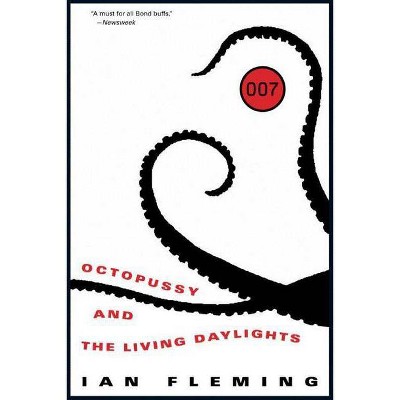Molecular Orbitals and Organic Chemical Reactions - by Ian Fleming (Paperback)
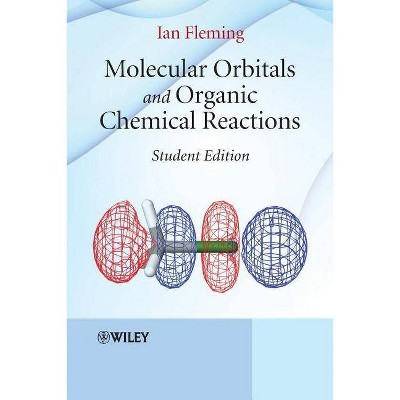
Similar Products
Products of same category from the store
AllProduct info
<p/><br></br><p><b> Book Synopsis </b></p></br></br><b>Winner of the PROSE Award for Chemistry & Physics 2010</b> <p>Acknowledging the very best in professional and scholarly publishing, the annual PROSE Awards recognise publishers' and authors' commitment to pioneering works of research and for contributing to the conception, production, and design of landmark works in their fields. Judged by peer publishers, librarians, and medical professionals, Wiley are pleased to congratulate Professor Ian Fleming, winner of the PROSE Award in Chemistry and Physics for <i>Molecular Orbitals and Organic Chemical Reactions.</i></p> <p>Molecular orbital theory is used by chemists to describe the arrangement of electrons in chemical structures. It is also a theory capable of giving some insight into the forces involved in the making and breaking of chemical bonds--the chemical reactions that are often the focus of an organic chemist's interest. Organic chemists with a serious interest in understanding and explaining their work usually express their ideas in molecular orbital terms, so much so that it is now an essential component of every organic chemist's skills to have some acquaintance with molecular orbital theory.</p> <p><i>Molecular Orbitals and Organic Chemical Reactions</i> is both a simplified account of molecular orbital theory and a review of its applications in organic chemistry; it provides a basic introduction to the subject and a wealth of illustrative examples. In this book molecular orbital theory is presented in a much simplified, and entirely non-mathematical language, accessible to every organic chemist, whether student or research worker, whether mathematically competent or not. Topics covered include: </p> <ul> <li>Molecular Orbital Theory</li> <li>Molecular Orbitals and the Structures of Organic Molecules</li> <li>Chemical Reactions -- How Far and How Fast</li> <li>Ionic Reactions -- Reactivity</li> <li>Ionic Reactions -- Stereochemistry</li> <li>Pericyclic Reactions</li> <li>Radical Reactions</li> <li>Photochemical Reactions</li> </ul> <p>Slides for lectures and presentations are available on the supplementary website: www.wiley.com/go/fleming_student</p> <p><i>Molecular Orbitals and Organic Chemical Reactions: Student Edition</i> is an invaluable first textbook on this important subject for students of organic, physical organic and computational chemistry.</p> <p>The Reference Edition edition takes the content and the same non-mathematical approach of the Student Edition, and adds extensive extra subject coverage, detail and over 1500 references. The additional material adds a deeper understanding of the models used, and includes a broader range of applications and case studies. Providing a complete in-depth reference for a more advanced audience, this edition will find a place on the bookshelves of researchers and advanced students of organic, physical organic and computational chemistry. Further information can be viewed here.</p> <p>These books are the result of years of work, which began as an attempt to write a second edition of my 1976 book Frontier Orbitals and Organic Chemical Reactions. I wanted to give a rather more thorough introduction to molecular orbitals, while maintaining my focus on the organic chemist who did not want a mathematical account, but still wanted to understand organic chemistry at a physical level. I'm delighted to win this prize, and hope a new generation of chemists will benefit from these books.<br /> -<b>Professor Ian Fleming</b></p><p/><br></br><p><b> From the Back Cover </b></p></br></br>Molecular orbital theory I used by chemists to describe the arrangement of electrons in chemical structures. It is also a theory capable of giving some insight into the forces involved in the making and breaking of chemical bonds - the chemical reactions that are often the focus of an organic and breaking of chemical bonds - the chemical reactions that are often the focus of an organic chemist's interest. Organic chemists with a serious interest in understanding and explaining their work usually express their ideas in molecular orbital terms, so much so that it is now an essential component or every organic chemist's stills to have some acquaintance with molecular orbital theory. <p><i>Molecular Orbitals and Organic Chemical Reactions</i> is both a simplified account of molecular orbital theory and a review of it applications in organic chemistry; it provides a basic introduction to the subject and a wealth of illustrative examples. In this book molecular orbital theory is presented in a much simplified, and entirely non-mathematical language, accessible to every organic chemist, whether student or research worker, whether mathematically competent or not. Topics covered include: </p> <ul> <li> Molecular Orbital Theory </li> <li> Molecular Orbitals and the Structures of Organic Molecules </li> <li> Chemical Reactions - How Far and How Fast </li> <li> Ionic Reactions - Reactivity </li> <li> Ionic Reactions - Stereochemistry </li> <li> Pericyclic Reactions </li> <li> Radical Reactions </li> <li> Photochemical Reactions </li> </ul> <p><i>Molecular Orbitals and Organic Chemical Reactions: Student Edition</i> serves in a sense as a second edition of the author's influential earlier book <i>Frontier Orbitals and Organic Chemical Reactions</i>, but has been completely rewritten, greatly enlarging the chapters on molecular orbital theory itself, and on the theoretical basis for the principle of hard and soft acids and bases, and a whole chapter on the stereochemistry of the fundamental organic reactions. Correlation diagrams have been added to the discussion of pericyclic chemistry, and a great deal more in that, the largest chapter. A number of new topics, both omissions from the earlier book and work that has taken place in the intervening years, are included, and there are more words of caution in discussing frontier orbital theory itself.</p> <p><i>Molecular Orbitals and Organic Chemical Reactions: Student Edition</i> is an individual textbook on this important subject for student or organic, physical organic and computational chemistry.</p> <p> </p><p/><br></br><p><b> Review Quotes </b></p></br></br><br>Fleming uses nonquantitative molecular orbital theory to explain many common phenomena in organic chemistry. As such, this is a very powerful tool for students of advanced organic chemistry. Much of what is taken simply on faith or with some hand waving in sophomore organic chemistry can be readily explained with molecular orbital theory, which is usually considered too advanced for students at that level. Though this book could be used as the primary textbook for a course solely on molecular orbitals in organic chemistry, it will more likely be used as a reference source for an advanced organic chemistry course for upper-level undergraduates or graduate students. (<i>CHOICE</i>, August 2010) <br /> <br /> <p>The new 'Fleming' is a must for every lecturer and every student of chemistry--a fantastic book. In this new form the textbook will last for another 30 years and remain as fresh as did its predecessor! (<i>Angewandte Chemie International Edition</i> March 2010)</p><br><p/><br></br><p><b> About the Author </b></p></br></br><b>Professor Ian Fleming, Department of Chemistry, University of Cambridge</b><br />Ian Fleming is an Emeritus Professor in the Department of Chemistry in the University of Cambridge, and an Emeritus Fellow of Pembroke College. He is the author of five textbooks: <i>Spectroscopic Methods in Organic Chemistry</i> (McGraw Hill, now in its 6th edition), <i>Spectroscopic Problems in Organic Chemistry</i> (McGraw Hill); <i>Selected Organic Syntheses</i> (Wiley), <i>Frontier Orbitals and Organic Chemical Reactions</i> (Wiley) and <i>Pericyclic Reactions</i> (OUP Oxford Chemistry Primer series).
Price History
Price Archive shows prices from various stores, lets you see history and find the cheapest. There is no actual sale on the website. For all support, inquiry and suggestion messagescommunication@pricearchive.us
